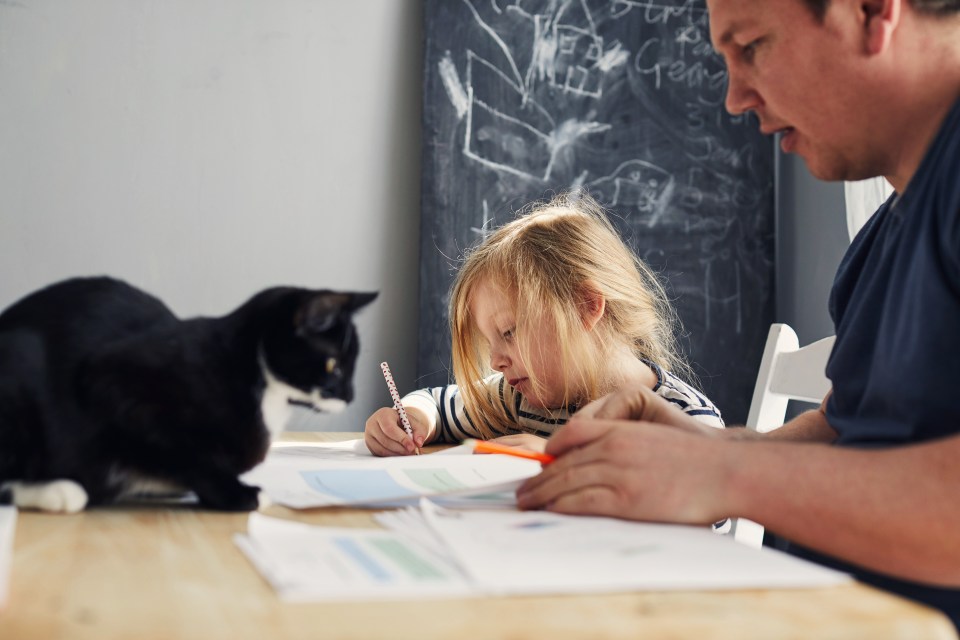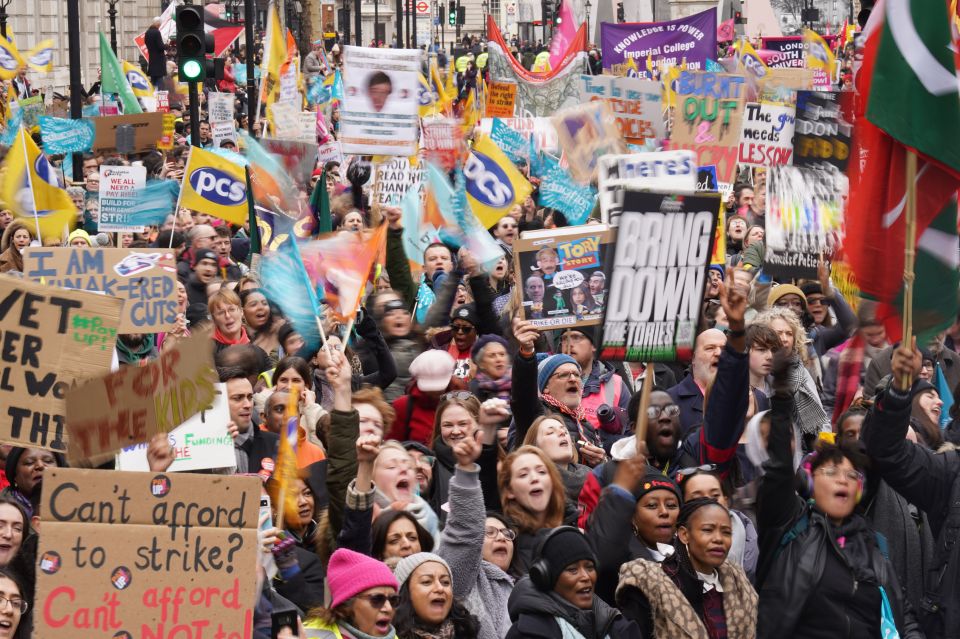Do I have to homeschool my kids during teacher strikes – and could I be fined?

TEACHER strikes will force thousands of kids to stay home over the coming weeks - and potentially parents too.
But are mums and dads obligated to homeschool their youngsters during the mass walkouts?
The Department for Education says parents have a legal duty to ensure any school-registered child of compulsory school age regularly attends class.
However, the rules become slightly muddy during industrial action as many schools partially or fully close due to a lack of staff.
In short though, there is no legal requirement to teach the curriculum on strike days - and that applies to all educators and locations.
It means by law, the content of lessons, if they happen at all, is flexible and not enforced.
READ MORE ON STRIKES
So if you are at work, working from home or otherwise unavailable when teachers walk off the job then you cannot be punished for not helping with remote learning.
You can, however, face a penalty for failing to take your child to school if theirs remains open and they have been told to come in.
This would be considered an unauthorised absence and can result in being ordered to go to parenting classes, council intervention, a fine of up to £2,500 and three months in prison.
A spokesperson for the DfT said: "All school-registered children of compulsory school age in classes open on days when strike action is being taken are still required to attend school, regardless of parental choice or the closure of other classes in the school."
Most read in The Sun
Headteachers are urged to "take all reasonable steps" to keep classrooms open, even with skeleton staff.
If they can't, kids should be given tasks to complete at home or links to video lessons wherever possible.
It is up to individual schools whether they decide to check in with students, or parents, throughout the day.
If a pupil is considered vulnerable or behind their peers, they should be able to go to school for supervised learning during strikes.
The children of critical workers and anyone with exams and formal assessments should also take priority, the DfT advises.
The fate of all other students is in the hands of individual headteachers or academy trusts.
MASS WALKOUTS
The National Education Union (NEU) has announced seven days of strikes throughout February and March.
Figures suggest that up to each time, with 23,000 schools expected to be affected.
The NEU estimates around 85 per cent of schools were either fully or partially shut on the first day on February 1.
Hundreds of panicked parents only found out their children's schools were closed just hours before the morning bell.
Teachers aren't required to give advance notice that they are participating in the mass protests, so many families were left in the dark until the night before or even at the gates in the morning.
It means there was a mad scramble to find costly last-minute childcare and permission to work from home or have a day off.
Dad Jonathan Wilkie, whose child attends Glade Hill Primary in Nottingham, said: "I found out at 3pm [yesterday] that my youngest is off school due to teacher strikes. Handy.
"I admire teachers as coaches for the future and they deserve to be paid fairly, but telling us with less than 24 hours notice is shocking.
"Booking a childminder requires payment and if you don't use it, you lose it."
Read More on The Sun
The teacher strikes come amid a wave of other industrial action across seven trade unions.
Up to half a million lecturers, civil servants, train drivers, security guards, bus drivers, nurses, ambulance workers and airport staff are walking off the job over the coming weeks.
What are you rights?
Can you take time off work if your child's school is closed due to strikes?
In short, yes. You are entitled to take reasonable time off work to deal with an unexpected problem or emergency.
This is also called "dependant leave", according to Citizens Advice.
Your employer can't refuse dependant leave if you have no other option and you won't face disciplinary action or lose your job.
If your child is under the age of 18, then you also have other rights to time off known as "parental leave" - but you must have worked for your employer for at least a year.
You can take up to 18 weeks off for parental leave before your child turns 18, but your employer can limit this to four weeks off per year.
Will you get paid for taking time off?
In both dependant and parental leave cases you won't be paid for your time off, unless your contract of employment says so.
You may be able to negotiate taking holiday with your employer if you'd still like to get paid and are entitled to paid holiday, but this will be at their discretion.
Crucially, you don’t have to make up the missed time later on.
A reasonable boss will be flexible, particularly if you've given them plenty of notice and there's nothing you can do about strikes.
For more advice, visit the website.


















